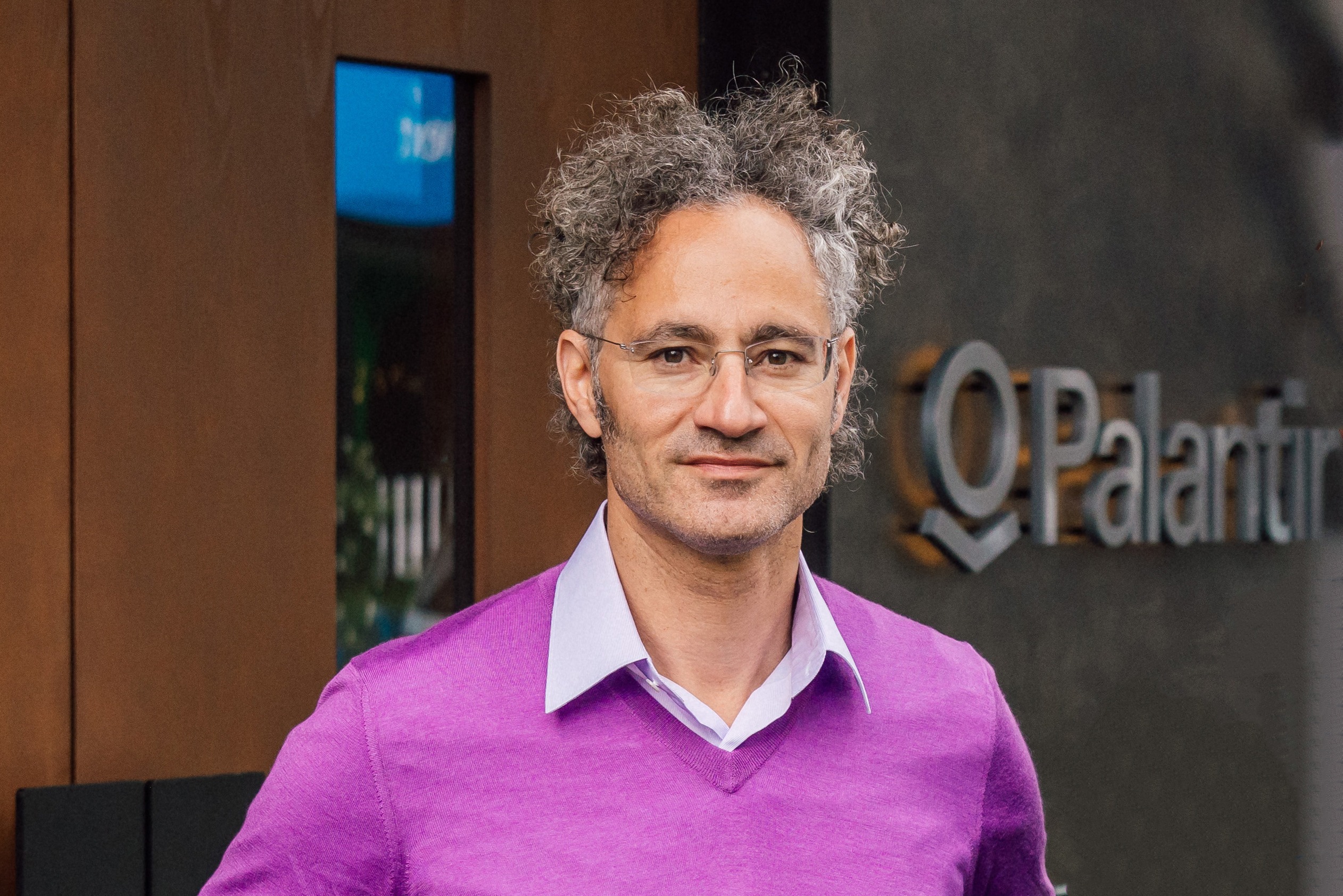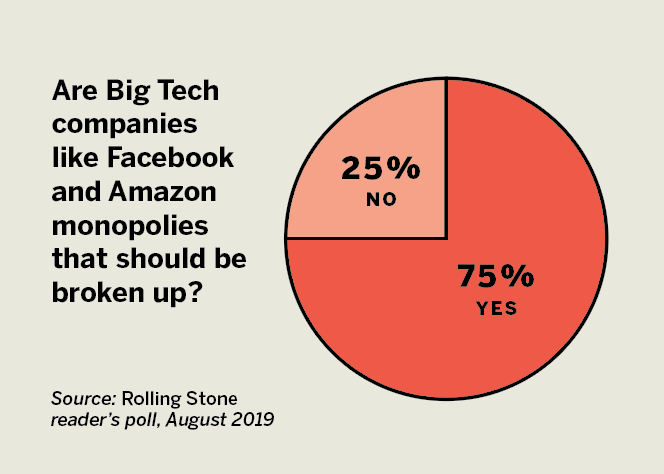Alex Karp: Meet the Self-Described Freak Leading the S&P 500’s Newest Member
The Palantir Technologies CEO does things his way—and it works

Alex Karp, a man who does as he pleases, runs a company that applies artificial intelligence to big data. It’s a crusade that’s helped him amass a personal fortune estimated at $4.7 billion.
Karp serves as CEO of Palantir Technologies, a company he helped start 21 years ago to track terrorists in the wake of the 9-11 attacks that ended 2,977 American lives. Last year, the Denver-based firm collected about 60% of its $2.7 billion in revenue from government contracts.
The public seems fascinated with Palantir, and Karp often appears on stage to try to satisfy their curiosity. In person or on video, the 57-year-old comes off as youngish, thanks to his wire-rims, muttonchops and an unruly shock of graying hair. He reinforces that youthful impression by delivering bursts of facts, figures and opinions with a boyishly infectious enthusiasm.
Sartorially, Karp does one better than Steve Jobs. While the late founder of Apple seemed unusually casual a few years ago in sneakers, jeans and black cashmere mock turtlenecks, Karp sometimes addresses the public wearing a plain old white T-shirt stretched over his fitness-freak biceps and his slight paunch.
But what’s he selling when he addresses those crowds of fans? If Palantir has an unofficial theme, it might be that “we believe in augmenting human intelligence, not replacing it.” That sentence appears in large, bold type on the company website, backed with the assurance in even larger lettering that “it’s why we’re here.”
To that end, the company offers three main Palantir projects with the metaphorical names of Gotham, Foundry and Apollo.
The software platforms
Palantir Gotham, a software as a service (SaaS) intelligence and counter-terrorism tool, augments the work of militaries and military analysts. Customers have included the United States Intelligence Community (USIC), and U.S. Department of Defense. Capabilities range from tracking enemy troop movements to employing predictive policing that foretells where crimes are likely to occur.
Palantir Foundry helps corporate clients integrate and analyze data. Customers have ranged from Morgan Stanley, Merck, Airbus and Lilium to Wejo, Ferrari, and Pacific Gas and Electric. It helped the U.K. deal with massive data related to the COVID-19 pandemic, and it took Tyson Foods from analog to digital, saving the company a reported $150 million annually.
Palantir Apollo software operates securely on a large scale, everywhere from data centers to active combat zones. It communicates, for example, from the back of a Humvee to a command post in the cloud.
Other Palantir offerings include its Artificial Intelligence Platform (AIP) which integrates large language models into privately operated networks. It’s purportedly useful in war zones, but Karp maintains its AI would not initiate targeting operations without human oversight.
Another product is the Titan, a truck outfitted as a mobile ground station for AI applications in combat. The U.S. Army has ordered 10 of them. MetaConstellation, a satellite network, a supports deployment of AI models in battle. Skykit, a portable toolbox containing batteries, a ruggedized laptop and company software, can connect with MetaConstellation.
It’s products have helped the U.S. detect improvised explosive devices in Afghanistan and streamlined the “kill chain” for the Ukraine armed forces, which includes identifying a target, dispatching forces to the target, attacking the target and destroying the target.
But it’s not all about war.
On the civilian side of the business, Palantir Metropolis software connects to commercial, proprietary and public sets of data and to search for trends, relationships and anomalies. It also includes predictive analytics. It’s used by banks, hedge funds and financial services providers.
Palantir incorporates artificial intelligence into a foundation for agencies, companies and militaries. And the company’s been wildly successful.
The (briefly stated) origin story
Palantir Technologies, which takes its name from the palantiri crystals used in The Lord of the Rings fantasies to see events in other parts of the world, was formed in 2023 and started doing business the next year.
Besides Karp, the founders included two other billionaire entrepreneurs, Peter Thiel and Stephen Cohen. Thiel, a billionaire political activist who helped start PayPal and Founders Fund, is credited with becoming the first outside investor in Facebook. Cohen, a billionaire computer scientist and president of Palantir, reportedly developed the Palantir prototype in eight weeks.
After the company had done business for nearly 17 years, Palantir stock began trading under the ticker “PLTR” in 2020 with a direct public offering. Using a DPO enabled the company to avoid heavy bank fees that accompany an initial public offering, or IPO, Karp has noted in his presentations to the public.
The stock opened at $10 per share and closed the day at $9.50. Initially, it had market capitalization of $16.5 billion, based on 1.65 billion shares outstanding. Its all-time high occurred on Jan. 26, 2021, with the price of $45, while the lowest price ever was $5.92 on Dec. 26, 2022. The stock is currently trading in the low 40’s.
And Palantir recently reached another type of new high.
A company milestone
Last month Palantir joined the S&P 500, an index measuring the performance of 500 large companies based on market capitalization. Palantir’s market cap is $95.6 billion.
A visibly joyous Karp celebrated the occasion by recording a video that opens with him clad in multi-colored tech wear and jogging along a forest trail with the aid of trekking poles. He pauses and looks directly into the camera.
“On Friday,” he says, “Palantir was admitted to the S&P, which is an enormous, momentous occasion for every Palantirian. It is enormous because the way in which we built the company should have precluded membership to the most elite institution in economic life—the S&P 500.”
He then recounts for viewers his version of the company’s history, which he says began with the clandestine services, migrated to the military, moved into U.S. commercial sector and then grew into commercial activities globally.
Palantir’s products form the basis for companies to operate with artificial intelligence and have preceded competitors’ offerings by a decade, making them the best in the world, Karp says in the video.
“It’s STILL radical because people cannot comprehend how we could have turned the switch and gone to gap profitability and gone from what adults, professional managers and some analysts thought was a Frankenstein monster by a freak show leader—me—to a clearly profitable company worthy of and admitted to the S&P 500. And we did it our way.”
The company has built what it ought to build, not what someone told them to build, he continues.
“The rebels won,” Karp declares. “We did this together and the future belongs to us.”
The “us” he’s referencing are the talented employees strongly attracted to working for the company. He described them during an address at AIPCon 5, an event convened last month for more than a hundred C-suite leaders from Palantir’s current and potential clients.
The Palantirians
“We have the very best people,” Karp told the customers he prefers to call partners. “The Palantir degree is the most important degree in tech, bar none.”
The company chooses employees who are “mission-aligned” and not just seeking to become “famous,” he told the high-ranking executives as he strode the stage at AIPCon5 in faded jeans and a white T-shirt that looked like underwear.
Palantirians at the conference might be hung over, Karp noted during his presentation, because they haven’t had many opportunities to party. No one would socialize with them in high school and during college they were busy trying to make their way into Palantir, he maintained.
Karp also praised those partner/customers for looking at the company’s products objectively instead of being influenced by the steak dinners that accompany meetings. His audience was dressed down for the event—they were wearing suits but skipped ties.
One couldn’t ignore the contrast between the speaker and his audience, and one couldn’t help but wonder how Karp’s journey brought him to this juncture.
Karp’s origin and evolution
Alexander Caedmon Karp was born in New York City and grew up in Philadelphia, struggling to overcome dyslexia. His father was a Jewish pediatrician and his mother an African American artist. His namesake, Caedmon, lived in the seventh century and was the earliest English poet whose name has not been lost to history.
Karp earned a bachelor’s degree from Haverford College, a law degree from Stanford University and a doctorate in neoclassical social theory from Goethe University Frankfort, which requires students to speak German for admission.
He took a job as a research associate at the Sigmund Freud Institute in Frankfurt and began investing an inheritance in stocks and startups. He went on to start a London-based money management firm called the Caedmon Group.
From there, Karp found his long-term vocational home at Palantir. Along the way, he’s voiced plenty of controversial opinions on just about any subject.
For Luckbox readers, his thoughts on short-selling might seem especially provocative. For him, traders who believe a stock will go down in price are comparable to cocaine addicts who “love pulling down great American companies.”
Describing himself at different times as a socialist and as a progressive, he publicly rejects “woke” ways of viewing issues faced by African Americans and the LGBTQ community. He voted for Hillary Clinton and contributed big-time to Joe Biden’s campaign.
He strongly supports the military, as might be expected from the business Palantir conducts. He’s stated his preference for the Western culture over the East, and he’s asserted Western nations should lead the world in developing and controlling artificial intelligence.
Karp is said to live in New Hampshire but also owns nearly a dozen homes located all over the world. His devotion to fitness is expressed in his passion for cross-country skiing and martial arts, but he’s reportedly given up swimming as “too empty.” He’s an expert marksman with handguns.
These days, Karp doesn’t drift off into a daydream in the middle of a conversation as often as he used to, but it can still happen. He’s told reporters that if something bores him, he loses interest and just doesn’t focus on it.
If anything, he’s a person who does as he pleases.
Ed McKinley is Luckbox editor-in-chief.






